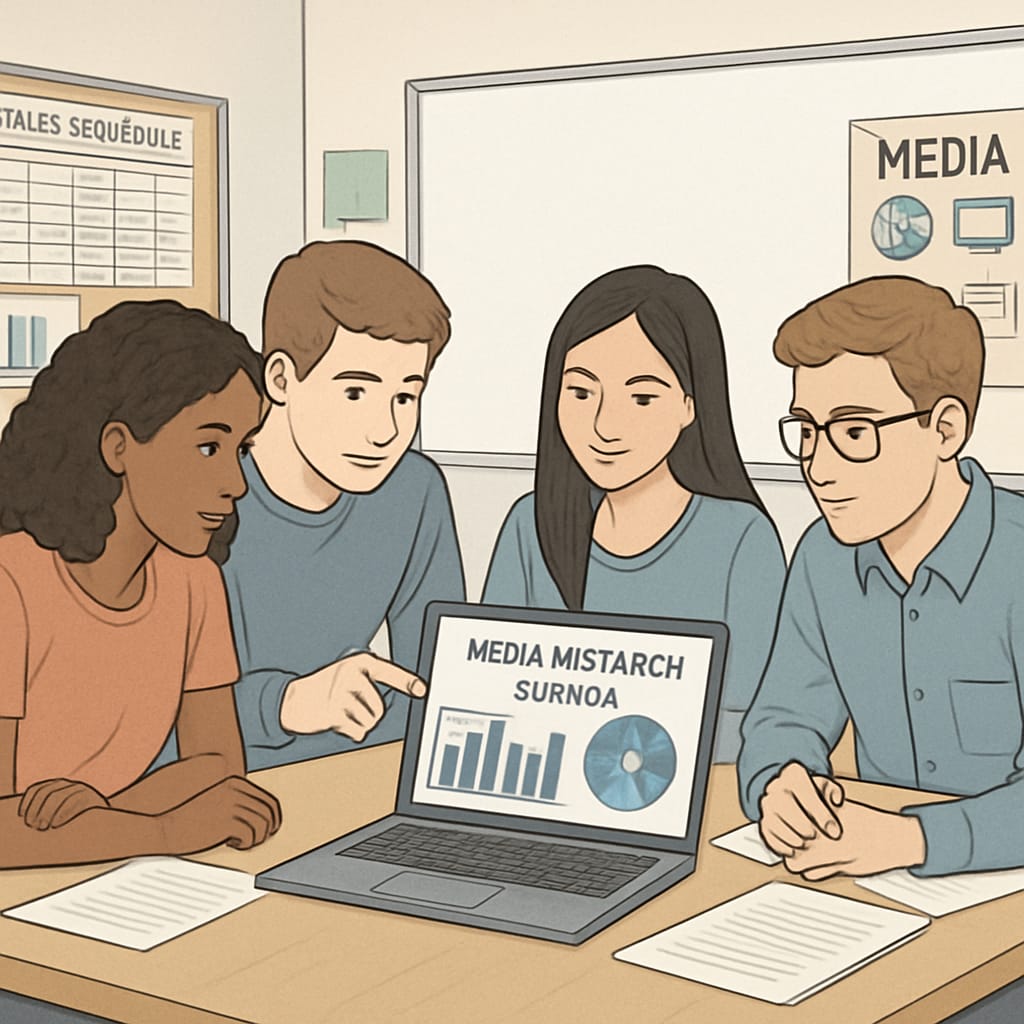Media research, survey projects, and academic support play a crucial role in modern K12 education. These activities not only provide students with hands-on experience but also foster critical thinking and essential research skills. In this article, we delve into the importance of integrating media studies and survey-based projects into K12 curricula, exploring how these initiatives prepare students to become thoughtful, data-driven researchers. Furthermore, we discuss practical methods to support young learners in their academic pursuits.
Why Media Research Matters in K12 Education
Media research is an increasingly important component of K12 education, as it equips students with the ability to critically analyze the information they consume. In today’s digital age, media literacy is no longer a luxury but a necessity. By engaging in media research projects, students learn to identify biases, evaluate sources, and understand the influence of media on society. This skillset is vital, not only for academic success but also for informed participation in civic life.
For example, a survey project focusing on social media usage among peers can help students understand how digital platforms shape opinions and behaviors. These projects encourage them to ask meaningful questions, design effective surveys, and analyze data critically. The hands-on experience gained through such research is invaluable and prepares students for more advanced academic work in the future.

Building Research Skills Through Survey Projects
Survey projects are an excellent tool for developing research skills in young learners. From formulating research questions to collecting and analyzing data, students gain a comprehensive understanding of the research process. These activities also teach them the importance of ethical considerations, such as obtaining informed consent and maintaining participant confidentiality.
Moreover, survey projects can be tailored to suit various age groups and academic levels. For instance:
- Elementary students: Simple surveys on topics like favorite books or hobbies can introduce basic concepts of data collection and analysis.
- Middle school students: Projects on topics like environmental awareness or digital habits can deepen their understanding of societal trends.
- High school students: Advanced surveys on topics like mental health or media consumption can prepare them for college-level research.
By engaging in these activities, students learn to connect theoretical concepts with real-world applications, making their education more meaningful and impactful.
Practical Ways to Support K12 Academic Research
To maximize the benefits of media research and survey projects, educators and parents can adopt several strategies to support young researchers:
- Provide access to resources: Ensure that students have access to reliable sources of information, such as libraries, academic databases, and online tools.
- Encourage collaboration: Group projects foster teamwork and allow students to learn from each other’s perspectives.
- Offer mentorship: Teachers and parents can guide students in refining their research questions, designing surveys, and interpreting data.
- Celebrate achievements: Showcase students’ work through presentations, school exhibitions, or publications to boost their confidence and motivation.
By implementing these strategies, we can create a supportive environment that nurtures the next generation of researchers.

The Long-Term Impact of Media Research in Education
Incorporating media research and survey projects into K12 education has far-reaching benefits. These activities equip students with critical thinking, problem-solving, and analytical skills that are highly valued in higher education and the workforce. Additionally, they foster a sense of curiosity and a lifelong love for learning.
For example, students who actively engage in media research are more likely to question the validity of information, make informed decisions, and contribute meaningfully to society. As a result, these initiatives not only benefit individual learners but also have a positive impact on communities and the broader world.
To conclude, media research, survey projects, and academic support are essential elements of a well-rounded K12 education. By integrating these practices into the curriculum, we can empower students to become thoughtful, data-driven individuals who are well-prepared for the challenges of the future.
Readability guidance: This article uses short paragraphs, clear headings, and lists to enhance readability. The content is written in active voice with minimal use of passive constructions, and transitions like “for example” and “as a result” are used to ensure smooth flow.


